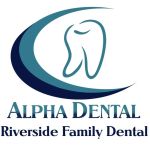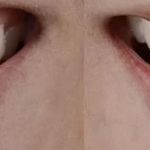The Role of a Dentist in Managing Sleep Apnea: Essential Insights
- Understanding Sleep Apnea
- How Dentists Manage Sleep Apnea
- Diagnosing Sleep Apnea
- Treatment Options for Sleep Apnea
- The Importance of Dental Involvement in Sleep Apnea
- Recommended Products for Sleep Apnea Management
Understanding Sleep Apnea
Sleep apnea is a serious sleep disorder where breathing repeatedly stops and starts during sleep. It is often associated with loud snoring and may result in fragmented sleep, leading to daytime fatigue. People with untreated sleep apnea face an increased risk of heart disease, stroke, and high blood pressure.
The condition is primarily divided into two types: obstructive sleep apnea (OSA) and central sleep apnea. OSA, the most common type, occurs when the muscles in the throat relax excessively during sleep, blocking the airway. Central sleep apnea, on the other hand, occurs when the brain fails to signal the muscles that control breathing.
How Dentists Manage Sleep Apnea
Dentists play a critical role in the management of sleep apnea, especially in cases of mild to moderate obstructive sleep apnea (OSA). They provide non-invasive treatments that complement other medical interventions. Their approach often involves customized dental appliances that help keep the airway open during sleep.
1. Oral Appliances
Oral appliances, also known as mandibular advancement devices (MADs), are designed to reposition the lower jaw and tongue to prevent airway collapse. These devices are often recommended for people who cannot tolerate CPAP (continuous positive airway pressure) therapy or prefer a more comfortable solution.
2. Collaboration with Sleep Specialists
While dentists can effectively manage mild sleep apnea, they often work closely with sleep specialists and physicians for a comprehensive treatment approach. In severe cases, a dentist might recommend CPAP therapy or surgical options after proper evaluation.
Diagnosing Sleep Apnea
Proper diagnosis of sleep apnea is essential for effective treatment. While a dentist can suspect sleep apnea based on oral health assessments, definitive diagnosis usually requires a sleep study. During the study, known as polysomnography, various parameters like brain waves, oxygen levels, and heart rate are monitored to confirm the presence and severity of sleep apnea.
Dentists may look for telltale signs of sleep apnea during routine dental checkups, such as a large tongue, jaw alignment issues, or worn-down teeth due to grinding. These symptoms may indicate that further evaluation is necessary.
Treatment Options for Sleep Apnea
1. CPAP Therapy
CPAP (Continuous Positive Airway Pressure) is often the most effective treatment for moderate to severe obstructive sleep apnea. It involves wearing a mask over the nose or mouth during sleep, which delivers a steady stream of air to keep the airway open. Though highly effective, some people find CPAP uncomfortable and may prefer alternative treatments offered by their dentist.
2. Lifestyle Changes
For many people, lifestyle changes can significantly improve sleep apnea symptoms. Maintaining a healthy weight, avoiding alcohol, and sleeping on your side can help reduce the frequency of apneas during the night. Dentists may advise on dietary or behavioral modifications as part of a comprehensive treatment plan.
The Importance of Dental Involvement in Sleep Apnea
Dentists are uniquely positioned to detect and manage sleep apnea due to their expertise in the mouth and airway structure. They can help identify early signs of sleep apnea and recommend appropriate interventions. In addition, dentists can monitor the effectiveness of oral appliances and make adjustments for better comfort and performance.
Early intervention by a dentist can also prevent complications associated with untreated sleep apnea, such as tooth wear from grinding, gum recession, and jaw pain. As part of a holistic approach, dental care ensures that the airway remains clear, improving both sleep quality and overall health.
Recommended Products for Sleep Apnea Management
For those diagnosed with sleep apnea, several products are available to aid in managing the condition effectively. Custom-made oral appliances designed by a dentist are often recommended for mild to moderate cases. Additionally, CPAP devices and accessories may be prescribed for those with more severe sleep apnea.
If you're looking for professional advice or products tailored to managing sleep apnea, visit Dentistry Toothtruth for more information and consultations.







 Morrone, Kaye and Yucha Orthodontics - Moorestown5.0 (387 review)
Morrone, Kaye and Yucha Orthodontics - Moorestown5.0 (387 review) Baystate Family Dental4.0 (27 review)
Baystate Family Dental4.0 (27 review) Riverside Family Dental4.0 (431 review)
Riverside Family Dental4.0 (431 review) King's Family Dental Group4.0 (147 review)
King's Family Dental Group4.0 (147 review) Valley View Dental4.0 (1195 review)
Valley View Dental4.0 (1195 review) Breakwater Dental4.0 (58 review)
Breakwater Dental4.0 (58 review) The Importance of Oral Health Education During Pregnancy for a Healthy Pregnancy
The Importance of Oral Health Education During Pregnancy for a Healthy Pregnancy Best Tips for Brushing Your Teeth Properly for Healthy Gums: Essential Techniques for Oral Health
Best Tips for Brushing Your Teeth Properly for Healthy Gums: Essential Techniques for Oral Health Why Skipping Dental Checkups Can Lead to Bigger Oral Health Problems
Why Skipping Dental Checkups Can Lead to Bigger Oral Health Problems Advantages of Porcelain Dental Restorations
Advantages of Porcelain Dental Restorations How Can Diabetes Cause Tooth and Gum Problems? Preventing and Managing Oral Health Issues
How Can Diabetes Cause Tooth and Gum Problems? Preventing and Managing Oral Health Issues Healthy Habits for Promoting Good Oral Health and Hygiene: Tips for a Healthy Smile
Healthy Habits for Promoting Good Oral Health and Hygiene: Tips for a Healthy Smile